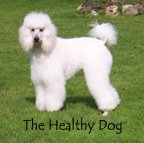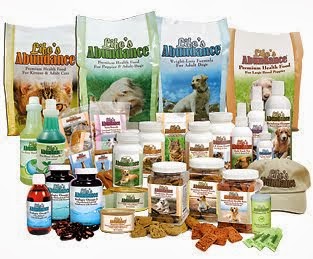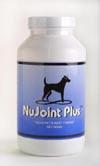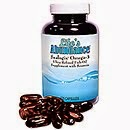Dogs have tear glands which constantly produce tears that wash the surface of their eyes. These glands sometimes get clogged up causing a discharge under a dog's eyes that makes them look like they are crying. When this happens, their hair under the eyes can get mats and cause eye irritations. You can simply whip under the eyes to remove the sticky discharge and prevent this from happening.
Some studies say they do not cry to express their sad emotions by shedding tears, but I find this to be false. My dog crys when he is sad and when I am away from home. Dogs may be more sensitive than we can imagine.
Remember to hug your dogs to show them you care.
Saturday, November 30, 2013
Sunday, November 10, 2013
Poisons that Can Harm your Pets
Pet Poisons From A to Z
Taken from: given credit to: shared by Spotts Grooming
Vetstreet has compiled an A to Z list of some common pet poisons that should be on your radar. This list is not all-inclusive, so for more information on these and many other toxins, check out the ASPCA Animal Poison Control Center website and talk with your vet. http://www.aplaceforanimals.com/what-to-do-if-your-animal-has-been-poisoned/
Taken from: given credit to: shared by Spotts Grooming
Vetstreet has compiled an A to Z list of some common pet poisons that should be on your radar. This list is not all-inclusive, so for more information on these and many other toxins, check out the ASPCA Animal Poison Control Center website and talk with your vet. http://www.aplaceforanimals.com/what-to-do-if-your-animal-has-been-poisoned/
- Acetaminophen, which is found in Tylenol and other medications, can cause liver damage in dogs. Cats are even more sensitive: Ingestion of a single 325 mg tablet by a 10-pound cat can cause anemia and even be fatal. Toxicity Ranking: moderate to severe.
- Batteries can be toxic to both dogs and cats, leading to ulcers in the mouth, esophagus and stomach. Toxicity Ranking: moderate to severe.
- Chocolate can cause seizures and death in dogs and cats. Darker chocolate, such as unsweetened baker's chocolate, is more toxic than milk or white chocolate. Even cocoa bean mulch, when eaten in large quantities, can be a problem. Toxicity Ranking: moderate to severe.
- Detergents and fabric softener sheets can cause ulcers in the mouth, esophagus and stomach in dogs and cats. Toxicity Ranking: mild to moderate.
- Ethylene glycol is found in antifreeze, windshield de-icing agents and motor oils. Dogs and cats are attracted to its sweet taste, but as little as a teaspoon in cats or a tablespoon in dogs can cause kidney failure. Recently, antifreeze and engine coolant manufacturers have agreed to voluntarily add bittering agents to reduce the products' appeal to pets and children. Toxicity Ranking: severe to fatal.
- Fertilizers can contain poisonous amounts of nitrogen, phosphorus, potassium, iron, zinc, herbicides and pesticides. Keep dogs and cats away from treated lawns until they are dry. Check the product packaging, though, since some products must be rinsed into the lawn before it is safe to walk on. Toxicity Ranking: mild to moderate.
- Grapes, raisins and currants - even grape juice - in small amounts can cause kidney failure in dogs. Toxicity Ranking: moderate to severe.
- Household cleaners, such as bleach, drain cleaners, ammonia and toilet bowl cleaners, can cause gastrointestinal ulcers and other problems in dogs and cats. Toxicity Ranking: varies.
- Insecticides in flea and tick products can cause problems if not used according to labels. Insecticides that are meant for dogs can cause severe toxicity in cats, leading to signs such as vomiting, seizures and difficulty breathing. Products intended for treating the yard or house should not be used on pets. Toxicity Ranking: mild to severe.
- Jimson weed, also known as devil's trumpet, can cause restlessness, drunken walking and respiratory failure in dogs and cats. Toxicity Ranking: moderate.
- Kerosene, gasoline and tiki torch fluids can cause drooling, drunken walking and difficulty breathing in dogs and cats. If these products contain antifreeze, they are even more problematic. Toxicity Ranking: moderate to severe (potentially life threatening).
- Lilies - Easter, day, tiger, Japanese and Asiatic varieties - can cause kidney failure in cats. Lilies of the valley can cause heart rhythm problems and death in dogs and cats. Toxicity Ranking: moderate to severe.
- Mothballs, especially if they contain naphthalene, can be toxic to dogs and cats, resulting in vomiting, diarrhea, increased drinking and urination, and seizures. Toxicity Ranking: moderate to severe (potentially life threatening).
- Nonprescription medications, such as ibuprofen, can lead to severe ulcers and anemia, as well as liver and kidney failure in pets. Toxicity Ranking: moderate to severe (potentially life threatening).
- Onions, garlic, leeks and chives can be toxic in dogs and cats. When chewed or swallowed, these ingredients can cause anemia and gastrointestinal upset. Toxicity Ranking: mild to moderate.
- Prescription medications, such as antidepressants and ADHD and cardiac drugs, are commonly ingested by pets when pills are dropped on the floor or left on counters. Even a small dose can cause problems. Toxicity Ranking: varies.
- Queensland nuts, also known as macadamia nuts, can cause lethargy, vomiting and difficulty walking in dogs. Toxicity Ranking: mild to moderate.
- Rodenticides, such as mouse and rat poisons, can contain a number of different toxins, which have different effects on dogs and cats. Several common ingredients, like warfarin and coumarin, can cause blood clotting problems and hemorrhaging. Toxicity Ranking: mild to severe.
- Sago palms are one of a number of toxic plants for dogs and cats. Ingestion can lead to vomiting, diarrhea and seizures, as well as liver failure in dogs. Toxicity Ranking: severe.
- Tobacco can be toxic to both dogs and cats. Ingestion of nicotine in the tobacco plant or in cigarettes or patches can lead to vomiting, tremors, collapse and death. Toxicity Ranking: moderate to severe.
- Unbaked bread dough can expand in the stomach. If the stomach twists, cutting off the blood supply, emergency surgery is needed. The yeast in the dough can also produce alcohol, leading to seizures and respiratory failure. Toxicity Ranking: mild to severe.
- Veterinary prescriptions, such as arthritis medications, are often meat-flavored, which can be enticing to dogs. Ingestion of large quantities can result in stomach ulcers, liver failure or kidney failure. Toxicity Ranking: moderate to severe.
- Windshield wiper fluid can contain methanol or ethylene glycol. Ingestion of methanol can cause low blood sugar and drunken walking in dogs and cats. Toxicity Ranking: mild to moderate.
- Xylitol is a sugar-free sweetener commonly found in chewing gum, breath mints and toothpaste. In dogs, it can lead to dangerous drops in blood sugar and liver failure. Toxicity Ranking: mild to severe.
- Yard products, including snail and slug bait, herbicides and fertilizers, are never good for pets. Signs will vary by the ingredient. Toxicity Ranking: varies.
- Zinc toxicity can happen when dogs and cats eat metal or coins. Ingestion of even a single zinc penny can be fatal. Zinc can cause anemia, as well as liver, kidney or heart failure. Toxicity Ranking: moderate to severe.
Monday, November 4, 2013
Keeping poodle ears clean
Is your poodle always getting his ears dirty or wet? Here is a great way to keep them from getting messed up while eating and drinking.
Take and part the hair downward in the front part of the ears. Next, take small grooming bands and place them down the hair until you reach the bottom. Continue to do that in your next part but join that part with the first one. You can do as many as you wish and band the entire ear hair if that's the look you like. In this picture of Pippin, I just did two rows. I needed to do this much sooner as you can see the yellowed stain in his hair.
I will post a picture in the future showing the new clean look.
Take and part the hair downward in the front part of the ears. Next, take small grooming bands and place them down the hair until you reach the bottom. Continue to do that in your next part but join that part with the first one. You can do as many as you wish and band the entire ear hair if that's the look you like. In this picture of Pippin, I just did two rows. I needed to do this much sooner as you can see the yellowed stain in his hair.
I will post a picture in the future showing the new clean look.
Sunday, November 3, 2013
Window Cleaner that is Safe for Dogs
Are you worried about using chemicals to clean your windows that your dogs put their noses on? Well, I have a great recipe for you.
All you need is:
3 cups of vinegar
1 cup unscented alcohol
1 teaspoon of corn starch
1 teaspoon of essential oil. I use peppermint and lemon 1/4 of each.
You can also use these other oils as well - Thyme, Sweet Orange, Rosemary, Grapefruit, lavender or lemongrass.
Mix in a spray bottle and remember to shake every time you spray it.
Smells Great, Cleans Great and most importantly it's SAFE for your dogs health and you!
*please check out my website www.spottsgroomiong.com for other healthy pet products*
All you need is:
3 cups of vinegar
1 cup unscented alcohol
1 teaspoon of corn starch
1 teaspoon of essential oil. I use peppermint and lemon 1/4 of each.
You can also use these other oils as well - Thyme, Sweet Orange, Rosemary, Grapefruit, lavender or lemongrass.
Mix in a spray bottle and remember to shake every time you spray it.
Smells Great, Cleans Great and most importantly it's SAFE for your dogs health and you!
*please check out my website www.spottsgroomiong.com for other healthy pet products*
Subscribe to:
Posts (Atom)










